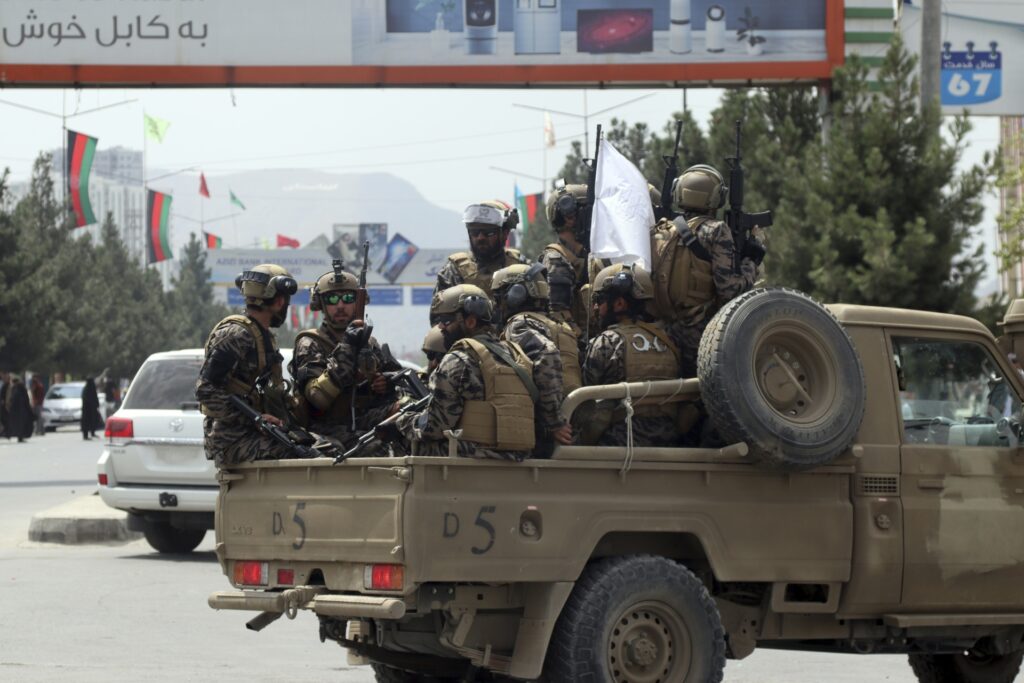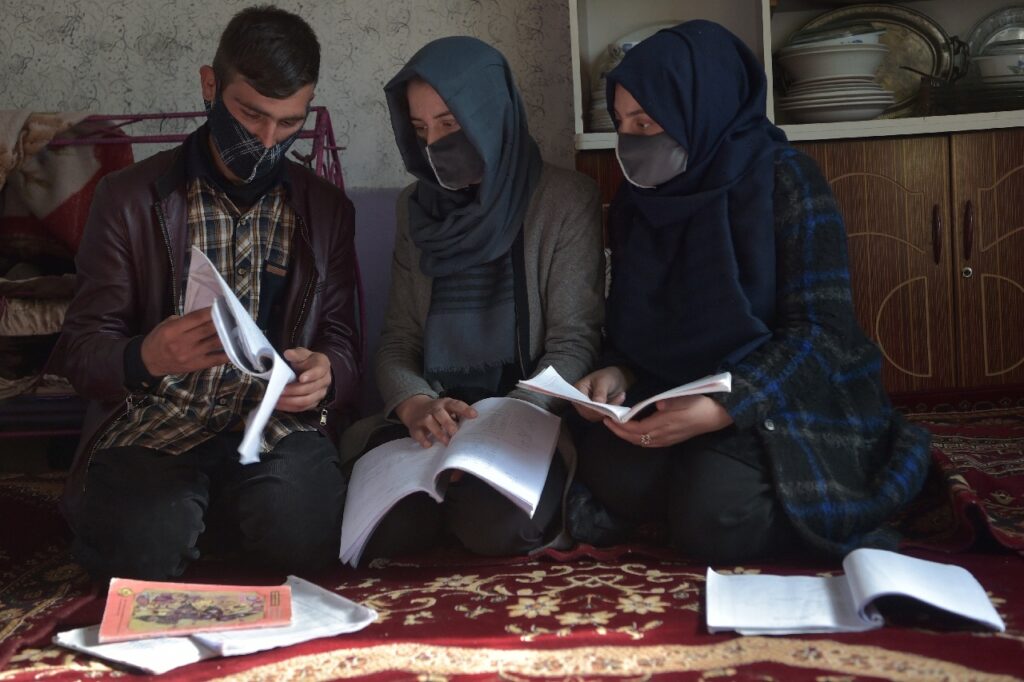The U.N. Security Council (UNSC) issued a statement on Tuesday condemning the Taliban for excluding women from universities and banning them from working for humanitarian groups. The UNSC said the Taliban’s moves reflect “an increasing erosion for the respect of human rights and fundamental freedoms,” and put lives at risk by interfering with humanitarian operations.
The Taliban junta seized power after U.S. President Joe Biden’s badly bungled withdrawal from Afghanistan with promises to treat women better than its predecessors in the 1990s. The Taliban quickly began violating these promises, but the U.N. and other international bodies sought to remain optimistic, in part because they feared a horrific civilian death toll would result if humanitarian aid was blocked from reaching Afghan civilians.

Taliban special force fighters arrive inside the Hamid Karzai International Airport after the U.S. military’s withdrawal, in Kabul, Afghanistan, Aug. 31, 2021. (Khwaja Tawfiq Sediqi, File/AP)
The Taliban banned girls from attending high school beyond the sixth grade in March. In November, they banned women from gyms and amusement parks. In mid-December, they banned women from universities, and then last week they banned women from working for foreign non-governmental organizations (NGOs).
The UNSC said all of these actions contradicted “the commitments made by the Taliban to the Afghan people, as well as the expectations of the international community,” and demanded the junta reverse its misogynist policies immediately, although it did not specify what consequences the Taliban might face for ignoring its demands.
Several top U.N. officials further criticized the Taliban this week, again without explaining why the brutal Islamist rulers of Afghanistan would take their criticism seriously.

Marwa (C) had hoped she would be able to follow her brother Hamid (L) into higher education but now the Taliban have banned women from attending university. (AFP)
“No country can develop – indeed survive – socially and economically with half its population excluded. These unfathomable restrictions placed on women and girls will not only increase the suffering of all Afghans but, I fear, pose a risk beyond Afghanistan’s borders,” U.N. High Commissioner for Human Rights Volker Turk said.
“Women and girls cannot be denied their inherent rights. Attempts by the de facto authorities to relegate them to silence and invisibility will not succeed,” Turk declared.
“The latest restrictions by the Taliban on employment and education of women and girls are unjustifiable human rights violations and must be revoked,” said U.N. Secretary-General Antonio Guterres on Tuesday.
Writing at the Hill on Wednesday, Atlantic Council senior fellow Javid Ahmad and intelligence veteran Douglas London warned that the Taliban is defying predictions that it would moderate its worst behavior to secure international recognition and financial support. Instead, the extremist government is building a “hermit kingdom” that is completely insulated from “external pressure or internal dissent.”
“The truth is, as bad as things are now in Afghanistan, it can get worse, and the country’s collapse into a rump state or decadency into dystopian existence would not stop at its own borders,” Ahmad and London wrote.
The authors predicted Afghanistan’s hermit kingdom would be exceptionally dangerous for the same reason the previous pariah regime was:
The Taliban has quietly cemented or adjusted its own arrangements among a troubling jihadist constellation involving Pakistani, Uzbek, Tajik, Uyghur, Arab and Baloch groups. Taliban rulers are reportedly registering foreign fighters and issuing them weapons permits and travel documents. Concurrently, the Islamic State’s Afghan chapter, ISIS-K, has emerged as the most kinetically active group rivaling the Taliban, which the ISIS-K depicts as apostates, Western puppets.
Externally, the Taliban has clashed with almost every neighboring country and regularly exploits the threat of militant violence to extract concessions. None of the Taliban’s neighbors has been able to offer the Taliban enough to walk away from regional jihadist groups, despite determined efforts by China, Iran and Afghanistan’s Central Asian neighbors. Conversely, the Taliban’s cooperation largely depends upon the degree to which each regional country supports or opposes anti-Taliban groups.
From this perspective, it makes sense for the Taliban to defy and humiliate organizations like the United Nations, advertising its stubborn independence to jihadi allies, secure in the knowledge that the international community will feed, clothe, and medicate the Afghan population.
Ahmad and London concluded the United States, Europe, and United Nations have little choice but to do business with the Taliban regime, opening a “dialogue with the ruling clerics” and finding incentives by which “they might be nudged toward acceptable engagement.”
The Taliban might have already reached the same conclusion, and be waiting for the United States or the UNSC to ask how much it will cost to get Afghan girls back into school.
